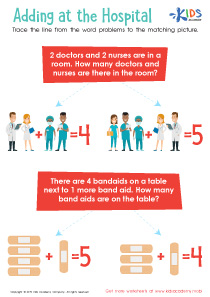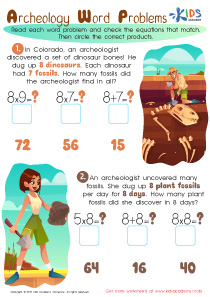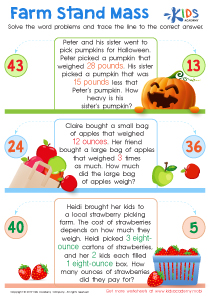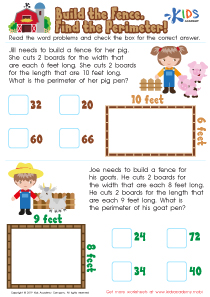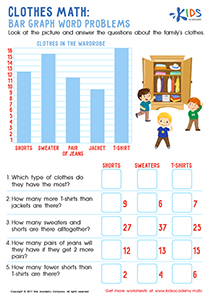Normal Two-step Word Problems Worksheets for Ages 4-5
13 filtered results
-
From - To
Introducing our Normal Two-step Word Problems Learning Worksheets, expertly crafted for children aged 4-5 years. These engaging worksheets are designed to gently introduce young learners to the fundamentals of problem-solving through carefully structured two-step scenarios. Each worksheet combines fun, age-appropriate challenges with vibrant illustrations to hold your child's interest. Our learning worksheets not only enhance critical thinking skills but also boost confidence in handling mathematical concepts early on. Perfect for both home and classroom use, they provide a solid foundation for future academic success. Get ready to watch your little ones enjoy and excel with every page!


Tricky Problems Worksheet: Part 1


Enrichment -2 Step Word Problems Worksheet


Adding Flower Petals Worksheet
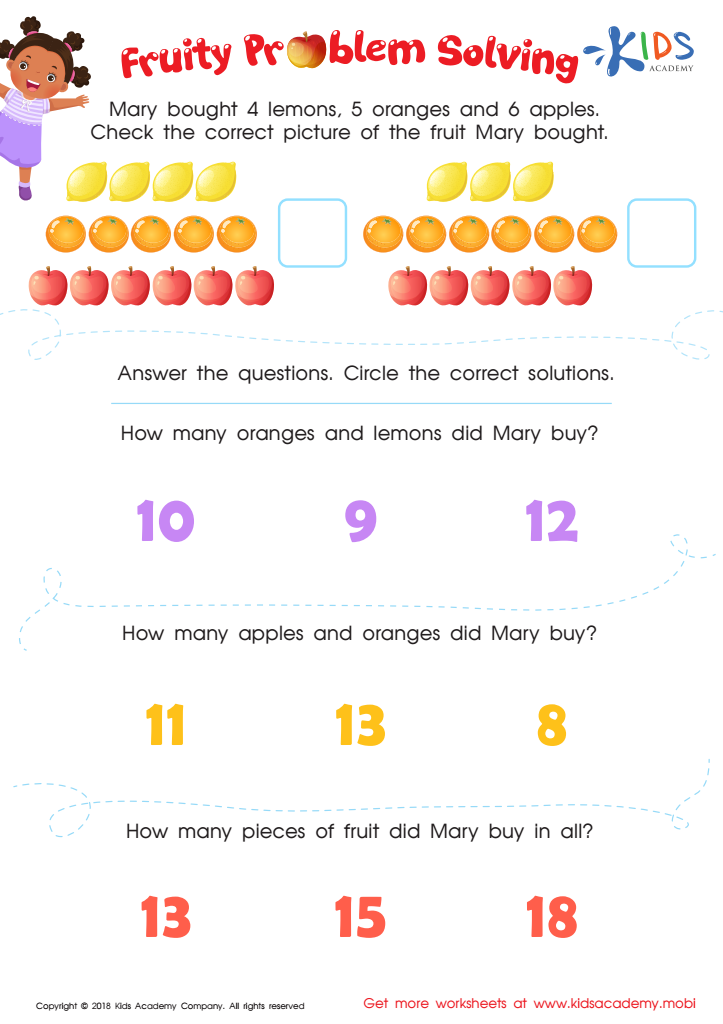

Fruity Problem Solving Worksheet
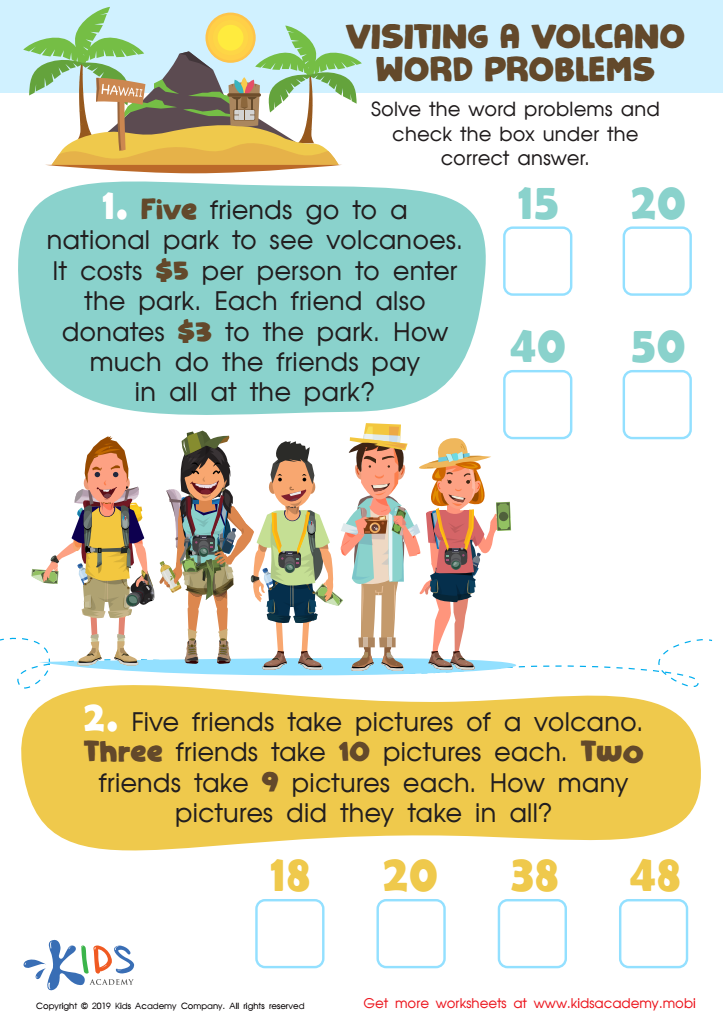

Visiting a Volcano Word Problems Worksheet
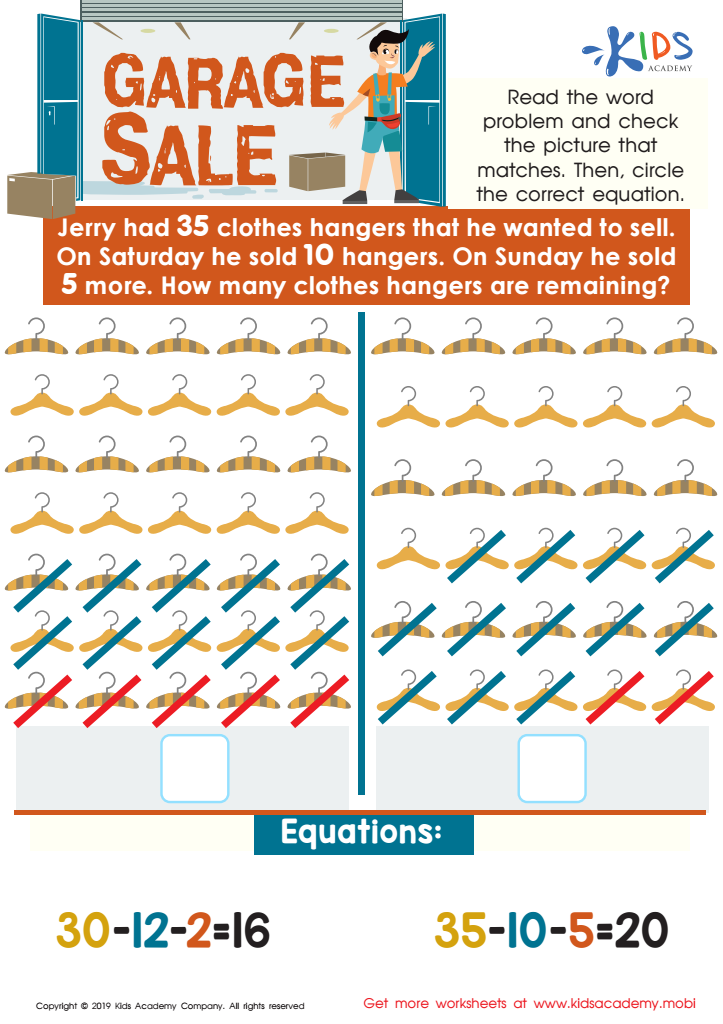

Garage Sale Worksheet


Tricky Problems Worksheet: Part 2
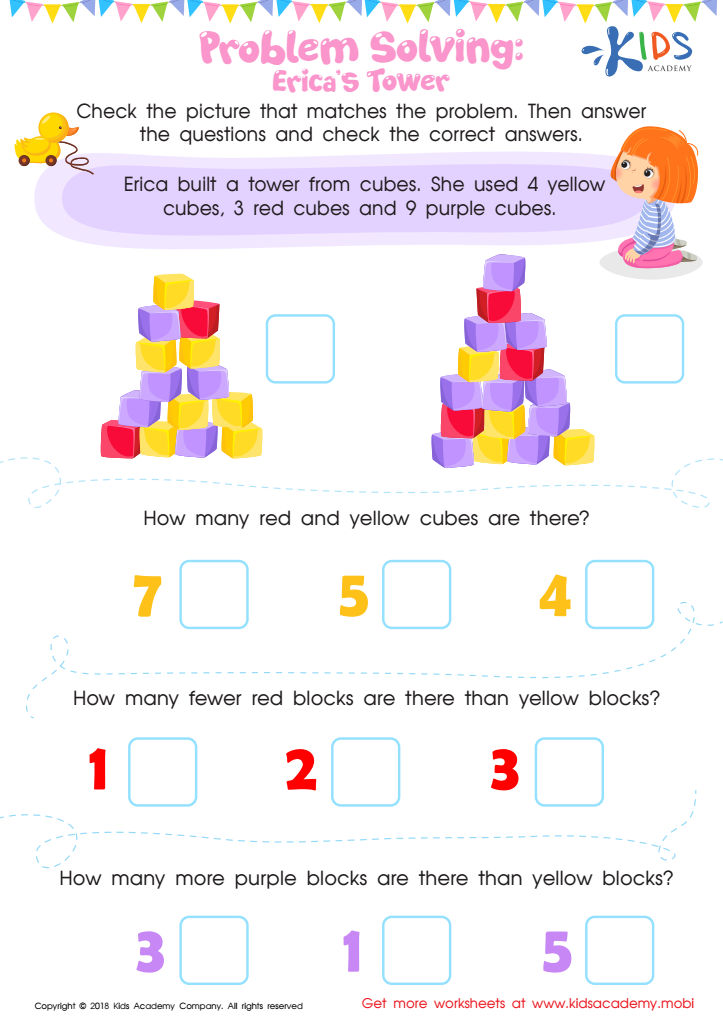

Problem Solving: Erica's Tower Worksheet
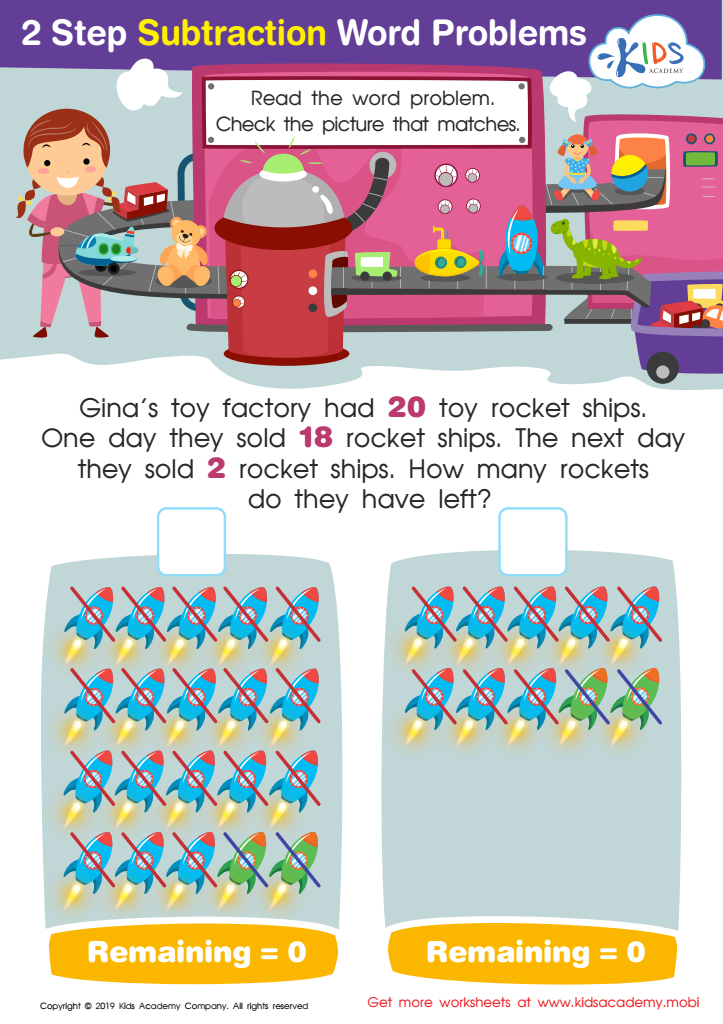

Step Subtraction Word Problems Worksheet


Solve the Problem: Trick–or–treating Worksheet


Addition and Subtraction: Word Problems Worksheet
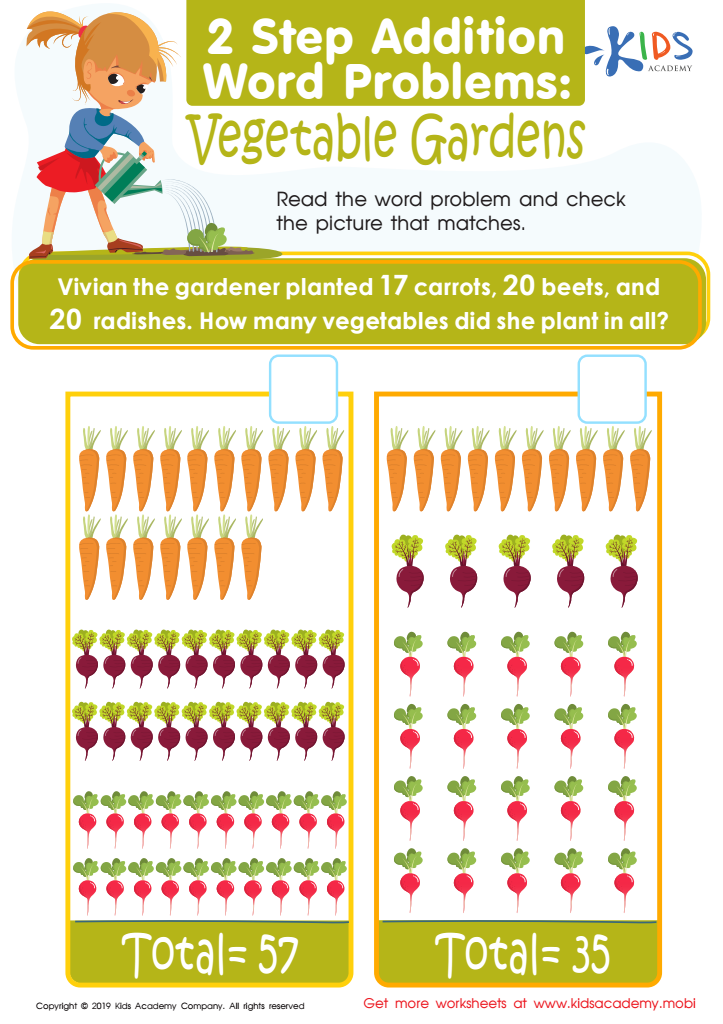

Vegetable Gardens Worksheet
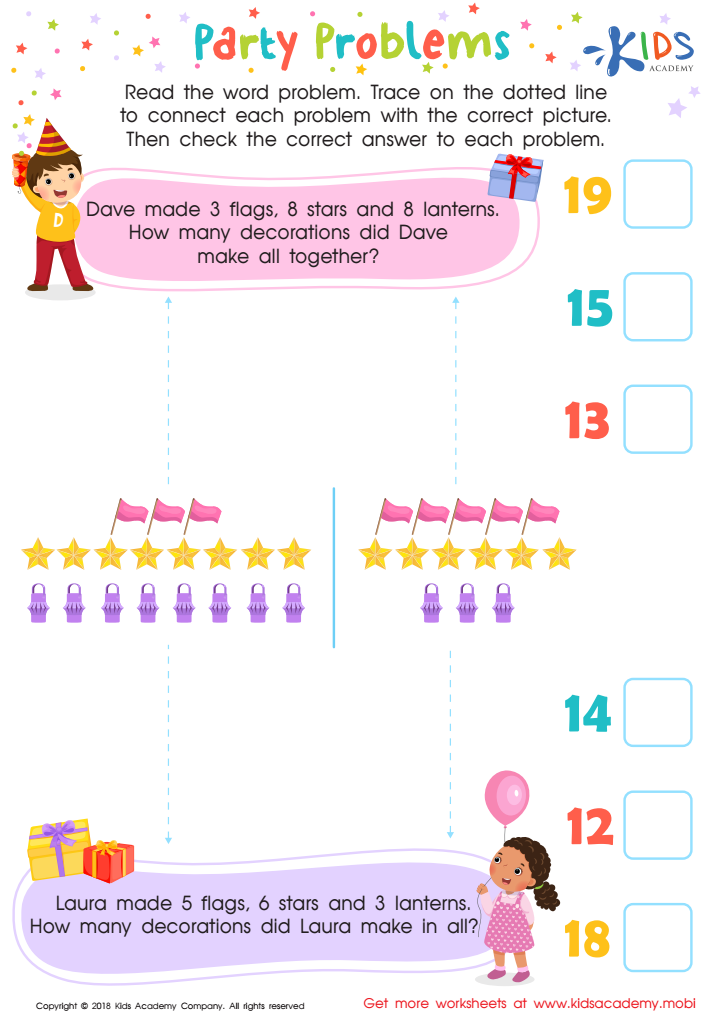

Party Problems Worksheet
The Importance of Normal Worksheets on Two-Step Word Problems for Young Learners
In the foundational years of education, especially for children aged 4-5, the integration of engaging and educational resources is crucial. Normal worksheets on two-step word problems, serving as key learning printables, play a vital role in nurturing early mathematical and critical thinking skills among young learners.
Development of Problem-Solving Skills
Two-step word problems are an excellent tool for developing problem-solving skills. These worksheets require children to perform two sequential operations to arrive at the solution. For example, a problem might first ask them to add two numbers and then subtract another number from that sum. This process helps children understand the concept of following steps in a sequence, which is not only essential in math but also in daily life activities.
Enhancing Reading and Comprehension Abilities
At ages 4-5, children are just beginning to develop their reading skills. Normal worksheets that involve word problems help bridge the gap between numerical cognition and literacy. As children read through the problems, they learn to parse and extract relevant information, enhancing their reading comprehension skills. This practice is crucial as it lays the groundwork for more complex reading and comprehension tasks they will face in higher educational levels.
Introduction to Real-World Applications
Learning printables that focus on two-step word problems introduce children to the concept of mathematics in real-world scenarios. By solving problems that mimic everyday situations, such as buying items from a store or distributing treats among friends, children can see the relevance of mathematics in their daily lives. This not only makes learning more engaging but also instills a sense of applicability and usefulness of mathematical concepts from a young age.
Boosting Confidence and Independence
Completing these worksheets provides a sense of achievement in young learners. Each completed problem boosts their confidence and encourages them to tackle more challenging questions. Furthermore, as they become more adept at solving these problems, they gain independence in their learning process. This early development of self-sufficiency in learning is critical as they progress through their educational journey.
Supporting Cognitive Development
The cognitive load required to solve two-step problems is significant at this developmental stage. Children must not only understand the question but remember information throughout the problem-solving process. This enhances memory, attention to detail, and executive functioning skills. Learning printables that challenge their cognition in a structured way are essential tools in supporting overall cognitive development.
Encouraging Collaborative Learning
Often, these worksheets can be used in a collaborative setting where children work in pairs or small groups to solve problems. This encourages the development of social skills such as communication, sharing ideas, and listening to others. As they discuss and negotiate the steps needed to find the solution, children learn the importance of teamwork and diverse thinking. These social interactions are crucial for emotional intelligence and help build a foundation for successful collaborative work in future educational settings.
Providing a Structured Learning Environment
Learning printables like two-step word problems offer a structured approach to learning complex concepts. By breaking down the problem-solving process into manageable steps, these worksheets help ensure that young learners do not feel overwhelmed. This methodical approach helps children understand that problems, no matter how complex, can be solved by breaking them down into smaller, more manageable parts.
Customizable Learning Experience
One of the great advantages of worksheets is their adaptability. Educators and parents can choose worksheets that match the specific learning pace and interests of their child. Whether a child is more interested in animals, space, or fairy tales, problems can be framed within these contexts to hold the child's interest. This customization makes learning more relevant and engaging, increasing the child's motivation to participate and learn.
Early Introduction to Mathematical Language
Engaging with two-step word problems from an early age also helps children become familiar with mathematical language and terminology. Terms like "add," "subtract," "total," and "difference" become part of their everyday vocabulary. This early familiarity with mathematical language eases their transition into more formal math education as they advance in grade level.
Preparation for Future Academic Success
The skills developed through solving two-step word problems are foundational to future academic success in various subjects. Not only do these skills apply to mathematics, but the logical thinking, reading comprehension, and problem-solving abilities are also transferable to science, technology, and engineering contexts. Early proficiency in these areas sets a strong foundation for lifelong learning and adaptation in an ever-evolving educational landscape.
In conclusion, normal worksheets on two-step word problems are more than just learning printables; they are a comprehensive tool that supports the holistic development of children aged 4-5. By fostering cognitive, linguistic, social, and mathematical skills, these worksheets prepare young learners for a successful educational journey, making them an invaluable resource in early childhood education.
 Assign to the classroom
Assign to the classroom
